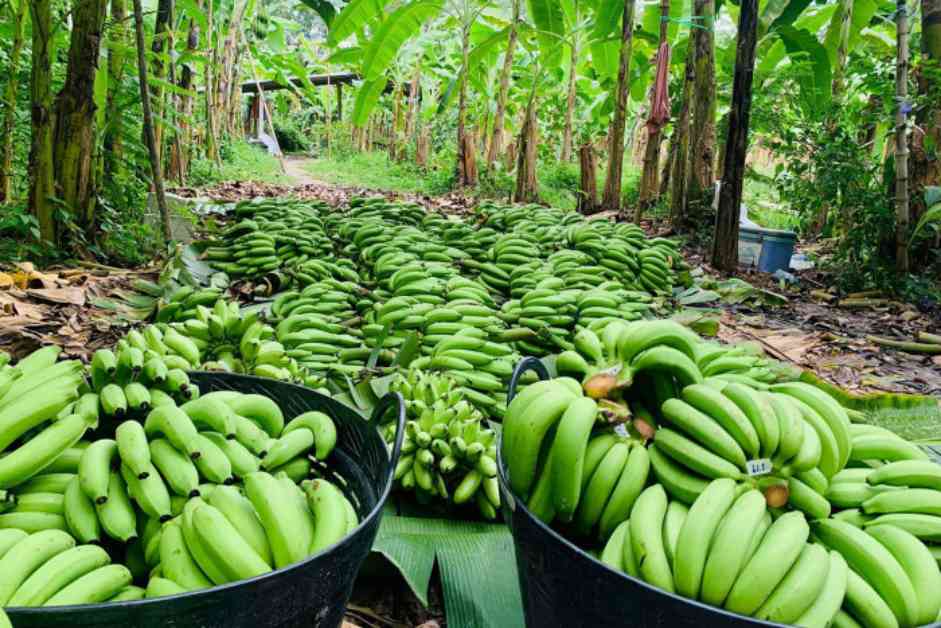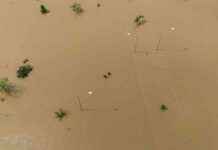Golden bananas, also known as kluay hom thong, have become a lucrative business for farmers in Bang Kaew district in Phatthalung province. These unique bananas have seen a surge in demand, leading to a doubling in price from 15 baht per kilogramme to 30 baht. This increase in price can be attributed to the growing popularity of the fruit, as well as a decrease in supply due to a lack of rain in the region since the second half of last year.
Somchai Nunual, the leader of the golden banana and fruit safety group in Bang Kaew district, has reported a significant increase in revenue among farmers in the area. He mentioned that the boom in the golden banana industry is expected to continue, as other farmers have been slow to transition to growing bananas. The unique soil in Bang Kaew district has proven to be more suitable for banana cultivation compared to traditional crops like rubber, rice, or oil palm.
The Internal Trade Department, a part of the Commerce Ministry, and the Agriculture and Cooperatives Ministry have forecasted a decrease in the hom thong harvest this year to just 32,000 tonnes, significantly lower than the 120,000 tonnes harvested last year. Despite the decrease in overall production, farmers’ incomes have seen a steady increase. In 2021, farmers earned an average of 243 baht per 100 bananas, which rose to 278 baht last year. The ministry predicts that farmers will earn 292 baht per 100 bananas this year.
Golden bananas are not only popular in the domestic market but also have a significant presence in the international market. Approximately 80% of the golden bananas are exported to Japan, with the remainder being sent to China and Cambodia. However, Japan’s quota for Thai golden bananas is set at 8,000 tonnes annually, but due to the inability of farmers to meet Japanese standards, the actual export volume is only half of that.
In Ban Lat district of Phetchaburi province, golden bananas have also become a vital crop for farmers. While some growers choose to sell their produce overseas, many are content with selling in the domestic market due to competitive prices and high demand. The success of golden bananas in these regions showcases the potential for farmers to boost their business through the cultivation and sale of this unique fruit.
Top Tips for Success in Golden Banana Sales
1. Quality Control: Ensure that the golden bananas meet the required standards for export, especially if targeting international markets like Japan. Consistency in quality will help maintain a good reputation and secure long-term buyers.
2. Market Research: Stay informed about market trends, demand fluctuations, and pricing dynamics to make informed decisions about when and where to sell the golden bananas for maximum profit.
3. Diversification: Consider exploring different avenues for selling golden bananas, such as local markets, supermarkets, or online platforms. Diversifying sales channels can help reach a broader customer base and reduce reliance on a single market.
4. Sustainable Practices: Implement sustainable farming practices to ensure the long-term viability of golden banana cultivation. This includes efficient water management, soil conservation, and responsible pesticide use to protect the environment and maintain crop health.
5. Branding and Marketing: Create a unique brand identity for your golden bananas to stand out in the market. Utilize effective marketing strategies to promote the health benefits, superior taste, and premium quality of the fruit to attract more customers.
By following these top tips for success in golden banana sales, farmers can capitalize on the growing demand for this unique fruit and boost their business in the competitive agricultural market. With the right strategies in place, farmers can maximize their profits and establish a strong presence in both domestic and international markets.




















